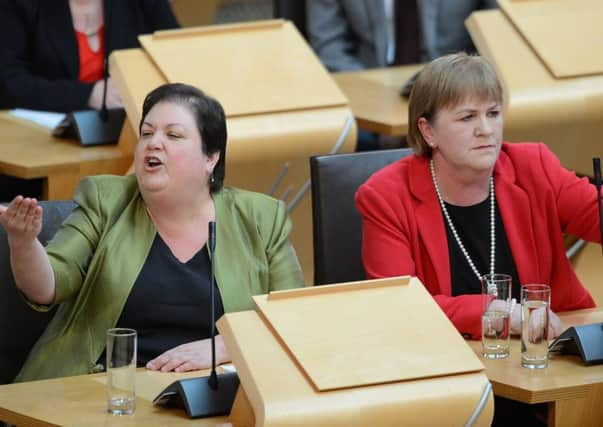Tom Peterkin: No ceasefire for independence debate


How interesting to hear John Swinney and Jackie Baillie admit that Scottish politicians and others involved in constitutional squabbling have not exactly been covering themselves in glory when it comes to the quality of the independence debate.
Appearing on one of the BBC’s referendum programmes on Tuesday, the finance secretary said he did not think the debate had been a “credit to Scotland”. Meanwhile Labour’s social justice spokeswoman said the Yes/No arguments had been “partially poisoned”. Both made earnest pleas for an elevation of tone. Sadly, one suspects that there will be little evidence of that when it comes to the next round of this interminable shouting match – Labour’s Devolution Commission.
Advertisement
Hide AdAdvertisement
Hide AdWithin minutes of its publication, SNP politicians were dismissing it for not going far enough – an inevitable criticism given the parties’ polar opposite views on the future of the United Kingdom.
Another inevitability is that many of the subtleties of the commission’s findings will be obscured by the heat of the debate. Therefore, it was important for Labour that the commission contained a broad brush message that can be communicated with ease, rising above the bad-tempered rhetoric without getting bogged down in technical economic argument.
In this case, Labour – under Johann Lamont – has positioned itself firmly on the Left with its promise to reform the tax system to make it easier to extract more money from the rich. Arguments will rage over the practicality of its plans to make it easier to raise income tax on high and middle earners without the power to lower the levy below the UK rate.
Although Labour says it only intends to target the very rich (those earning more than £150,000), there will be unease from middle income earners at the prospect of new powers to raise taxes in the second highest tax band. And that’s before one considers the prospect of reforming property tax outlined by the commission.
For Lamont, however, the over-riding objective is to get the message to Scots who are struggling that Labour can deliver a redistribution of wealth within the UK. At this time in our constitutional history, the reason for that is clear. Scottish Labour feels it has to secure No votes from the 300,000 or so traditional Labour voters, who – the polls tell us – are thinking of supporting independence.
Lamont may have insisted that her commission was looking ahead to devolved life beyond the referendum, but as with every political initiative taken at this time – one eye was firmly focused on 18 September. Labour is banking on its message cutting through the heat and becoming embedded in its wavering heartlands.